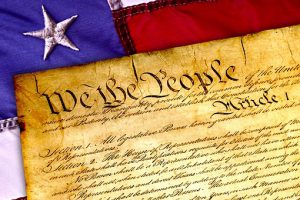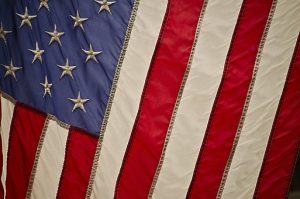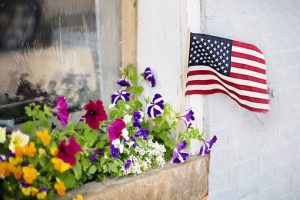Monday
Featured StoriesGoing Forth on the Fourth
Celebrating what is good about the United States of America, on what some have started calling “Interdependence Day”
by Michael Lerner
 Today hundreds of millions of Americans will celebrate all that is good in the history of the United States of America. Even though we know there is much to criticize about America (including the use of the word “America” as synonymous with the United States, thereby ignoring Canada, Mexico, and Central and South America) there is also much to celebrate.
Today hundreds of millions of Americans will celebrate all that is good in the history of the United States of America. Even though we know there is much to criticize about America (including the use of the word “America” as synonymous with the United States, thereby ignoring Canada, Mexico, and Central and South America) there is also much to celebrate.
Today we mark the signing of the Declaration of Independence, a document that still inspires many Americans today. Unfortunately, the high ideals expressed in the Declaration, “that all men are created equal and endowed with their creator with certain inalienable rights, among them life, liberty and the pursuit of happiness” were not actually put into practice when the Constitution was created and the United States came into existence. The word “men” was applied not in a general sense to include women, but rather to only include men. And, in fact, for the first decades of our country, the only people who could vote were white men who owned property. Worse, slavery was permitted and African Americans were counted as 3/5 of a European American in the census, which determined how many people lived in a given area who deserved representation in the Congress. Native Americans — those who had survived the near genocide of European settlement — did not figure at all in these equations.
Some of these distortions were rectified through the democratic process that had been set up by the founders of our country. History books focus on the people who were in power as if all change comes from those in positions of authority. The truth is, though, that much of what we love about America was created by ordinary citizens. Often they encountered resistance from those in power; sometimes they found allies in power who joined in the struggle.
 At this celebration, let’s give thanks for the ordinary and extraordinary Americans whose struggles brought about those changes:
At this celebration, let’s give thanks for the ordinary and extraordinary Americans whose struggles brought about those changes:
To the waves of immigrants from all parts of the world who struggled to accept each other and find a place in this country;
To the escaped slaves and their allies — particularly Quakers, evangelical Christians, and freedom-loving secularists — who built the underground railroad and helped countless people to freedom;
To the coalitions of religious and secular people — women and men, black and white — who built popular support for the emancipation of the slaves.
To the African Americans and allies who went to prison, lost their livelihoods, and were savagely beaten in the struggle for civil rights.
To the working people who championed protections like the eight-hour day, minimum wage, workers’ compensation, and the right to organize, often at great personal cost to them.
 To the immigrants who fought against “nativist” tendencies and refused to close the borders of this country to new groups of immigrants, and who continue to support a policy of “welcoming the stranger” just as this country opened its gates to their ancestors when they were the immigrants and strangers, and to all who fight for the safety and decent treatment of immigrants.
To the immigrants who fought against “nativist” tendencies and refused to close the borders of this country to new groups of immigrants, and who continue to support a policy of “welcoming the stranger” just as this country opened its gates to their ancestors when they were the immigrants and strangers, and to all who fight for the safety and decent treatment of immigrants.
To the women who risked family, job security, and their own constructed identities to shift our collective consciousness about men and women, and to raise awareness of the effects of patriarchy.
To all those who risk scorn and violence (and often lose their families) to lead the struggle against homophobia and for the acceptance of gay, lesbian, bisexual, transgendered, and queer people.
To those who continue to work for equal access for people with disabilities.
To those who advocate for sensitivity to animals and to the earth itself.
 To all of the innovators and artists who have brought so much beauty and usefulness into our lives.
To all of the innovators and artists who have brought so much beauty and usefulness into our lives.
To those who fought to extend democratic principles not only in politics but also in the workplace and in the economy.
To those who developed innovations in science and technology, in literature and art, in music and dance, in film and in computer science, in medical and communication technologies, and in methods to protect ourselves from the destructive impacts of some of these new technologies.
To those who developed psychological insights and increased our ability to be sensitive to our impact on others.
To those who developed ecological awareness.
To those who brought the insights of their own particular religious or spiritual traditions that emphasized love and caring for others and generosity toward those who had been impoverished and sought to turn those ideas not only into a call for personal charity but also into a mission to transform our economic and political systems in ways that would reflect those values.
To those who fought for peace and nonviolence, and who helped stop many wars.
 All that we celebrate in America involved hard-won struggles to overcome entrenched ways of thinking. Those struggles continue today, and it could easily take many more decades before they are fully realized. But the good news is that many people have retained their basic decency and caring for others. We are surrounded by people who care.
All that we celebrate in America involved hard-won struggles to overcome entrenched ways of thinking. Those struggles continue today, and it could easily take many more decades before they are fully realized. But the good news is that many people have retained their basic decency and caring for others. We are surrounded by people who care.
True, it’s often hard to show that. When first approached, many people express indifference to the well-being of others. Our economic system encourages selfishness, me-first-ism, “looking out for number one,” and indifference to the ecological and ethical impacts of our activities, and acting counter to those attitudes feels not only unfamiliar but also risky.
Yet underneath all that, most people yearn for a different kind of world, but they often think it is “unrealistic” to struggle for what they really believe in, since they are convinced that nobody else shares that desire with them. This is part of the reason I’ve worked with others to create a Network of Spiritual Progressives to support each other in building a world that really does reflect our highest values. If peace, social justice, ecological sensitivity, full implementation of human rights, and the creation of a society based on love is “unrealistic,” then we say “the heck with realism.” Being realistic in a deeper sense is not accepting “reality” as it is presently presented to us.
 Rabbi Michael Lerner, a lifelong political activist, serves as editor of the progressive interfaith magazine Tikkun, and as the rabbi of Beyt Tikkun Synagogue in Berkeley, California.
Rabbi Michael Lerner, a lifelong political activist, serves as editor of the progressive interfaith magazine Tikkun, and as the rabbi of Beyt Tikkun Synagogue in Berkeley, California.
Editor’s Note: Reprinted by permission from the interfaith Network of Spiritual Progressives; if you would like to read more about the NSP, visit their website at www.spiritualprogressives.org.
















